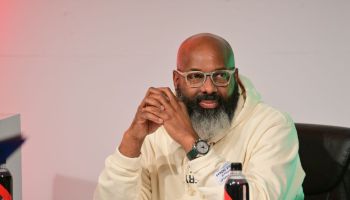(BLACKCHRISTIANNEWS) It cannot be denied that African-Americans have made tremendous progress — and one of the most significant factors that contributed to black success and survival has been our faith in God.
The manifestation of that faith is the religious community, which consists mostly of Christian churches that have produced positive spiritual, social, economic and political results for black America.
The question is whether black churches can continue to be the instruments of empowerment that they historically have been. Perhaps an understanding of the emergence and prominence of the African- American church will offer some insight to the potential that these churches still possess.
Eighty-seven percent of African-Americans report they are affiliated with a particular religious group, and 95 percent of those claim to be Christians, according to the 2007 U.S. Religious Landscape Study conducted by the Pew Research Center.
Belief in God, regular prayer, worship attendance and belief in life after death are some of the core beliefs of a large majority of African-Americans. Although the expressions of faith and religious practices might differ, religious faith itself is a constant in black America.
The African-American religious experience is a result of a convergence of African culture, biblical hermeneutic and social resistance, woven into institutions.
The common threads among the culturally diverse African slaves in North America were communal living, expanded families, cultural leadership and a deeply rooted appreciation for spirituality.
Enslaved Africans were exposed to the literature of the Christian Bible, and they found comfort and direction in the same book that was used to justify their enslavement. Slaves met the indignities and injustices that denied them their humanity with the same resistance that humans throughout history have shown oppression.
Religion in general and Christianity in particular became an answer to the mysteries of the cosmos and a way to cope: Only a belief in an unseen power and a faith in a divine advocate could sustain a people who faced such daunting circumstances.
When the highest court in the land relegates one’s race to subhuman status as a matter of law — which the Supreme Court did in the Dred Scott decision of 1857 — people need a source of authenticity for their identity. That source for African-Americans was the God of the Bible, who had sent Moses to lead the slaves out of slavery and who had sent his son to preach “good news to the poor and set the captives free.”
To read more go to: http://edition.cnn.com/2010/OPINION/08/01/soaries.black.church/#fbid=Bu0lCw_WCRR











